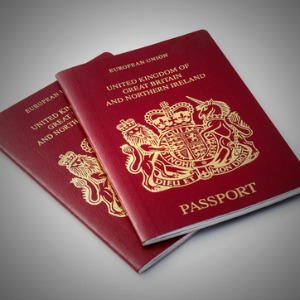Recruiters using seven-day working warnings to tempt GPs abroad

Exclusive Overseas recruiters are quoting health secretary Jeremy Hunt’s plans to step up seven-day working in an attempt to persuade GPs to move abroad, Pulse can reveal.
An email to GPs from specialist recruitment firm Head Medical calls on those who want to work four-day weeks and ‘spend the rest of the week with loved ones’ to consider taking up vacancies in New Zealand.
The agents say that a career in New Zealand is ‘becoming increasingly popular’ for GPs amid Mr Hunt’s proposals.
Doctors have already set up a petition to unseat Mr Hunt in light of a speech where he suggested doctors refusing to work weekends was related to 6,000 unnecessary deaths per year,which has already generated over 200,000 signatures.
Following the speech, Mr Hunt said that he had ‘yet to meet’ a doctor who does not want seven-day working.
However, the GPC has already urged Mr Hunt to give up ‘pipe dreams’ of seven-day GP appointments and RCGP chair Dr Maureen Baker has argued that GPs are already ‘being pushed to our limits in trying to provide a safe five-day service’.
The email from Head Medical to GPs states: ‘New Zealand has always been popular with GPs at all stages in their career but after the recent proposals by [Jeremy Hunt] of a “more human, seven-day care service”, it is now becoming an increasingly popular relocation favourite.
‘Whether you are looking to go out on a short-term contract to experience another culture and health care system and return to the UK with more life experience or if you are in fact looking to make the permanent move, New Zealand can be that reality.’
Head Medical’s managing director Anna Payne told Pulse that although there were many ‘pull factors’ for GPs made the ‘big decision’ to move overseas, such as ‘lifestyle, location, weather, financial reward and experience’.
Related articles
Four things Hunt should have put in the new deal
NHS England requests data on GP appointments to support case for seven-day working
GPs and consultants unite to show health secretary NHS already runs seven-day service
Stop insulting GPs with routine seven-day access drive, BMA warns Government
However, she added: ‘There is no doubt that there are also some push factors and perhaps growing dissatisfaction with working conditions, working hours, concerns around resourcing, employment contracts and the future direction of the NHS are encouraging greater numbers of doctors to consider working overseas.’
She said that her company, which is UK-based, is not trying to ‘lure or coerce’ GPs out of the NHS but are only doing targeted email campaigns aimed at GPs who have signed up to receive alerts about opportunities abroad.
RCGP chair Dr Maureen Baker said: ‘It is very worrying that such concerted efforts are being made to encourage GPs to work overseas at a time when the shortage of family doctors across the UK is so severe.
‘Campaigns such as this demonstrate how critical it is for the government and other health organisations to do everything possible to increase the general practice workforce in the UK by retaining our existing GPs, recruiting new doctors into general practice, and making it easier for trained GPs to return to practice after a career break.’
GPC deputy chair Dr Richard Vautrey said: ‘It’s vital that the secretary of state does all in his power to invest in general practice and address the workload and bureaucratic burdens that are undermining the quality of care GPs provide to patients and putting off doctors from becoming GPs in England.
‘This needs to be done urgently, despite the financial pressures facing the rest of the NHS, because a failure to do so will ultimately mean a huge loss of expensively trained skilled professionals and patient care will be further compromised.’









